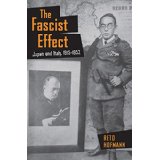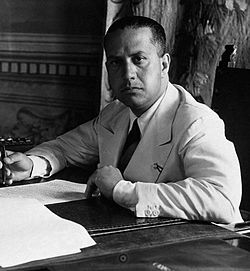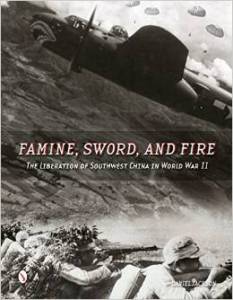Posted: August 27th, 2015 | No Comments »
Depending on when you visited Shanghai, where you went and how well you lived probably determines how you think Shanghai smells…
Those who know Shanghai of course won’t be surprised to know it was basically a knock off – Shanghai by Lentheric: launched in 1936 but was originally named CÅ“ur de Paris and had been launched in 1911. CÅ“ur de Paris was renamed Shanghai in 1936 and repackaged in a beautiful Chinese urn styled vase (with very 1930s bakelite cap). Old wine; new bottles – if you see what I mean. But still it looked lovely and, even if it was an old perfume brought back in new packaging, who could resist?
The big question – how did it smell? Well the Lenthric blog tells us here – and has more pictures of the packaging….

 the bottle
the bottle

the box
Posted: August 26th, 2015 | 4 Comments »
Reading the new biography of the crime writer Edgar Wallace – Stranger than Fiction: The Life of Edgar Wallace, The Man Who Created King Kong by Neil Clark – I was interested to know that the actress Sari Maritza, about whom Wallace developed a fascination in the early 1930s, was born in Tientsin (Tianjin).

Sari Maritza was born Dora Patricia Detring-Nathan in Tientsin in 1910, the daughter of Walter Nathan, a British Army Major turned wealthy businessman (in the mining business) in the city and his Viennese wife (reportedly of noble blood). She took her stage name from two operettas Sari and Countess Maritza. Leaving China, initially for her education in Europe, she got her start in the movies in 1930 in Germany, Austria and England and then became well known in Hollywood for dancing a tango with Charlie Chaplin at the premiere of City Lights – Chaplin claimed to have discovered her as the new “It Girl”. She was invariably type cast at the European vamp in Dietrich-like roles (indeed Paramount touted her as the “New Dietrich”) and played up her Austrian heritage despite spending most of her later life in Britain. She died in 1987 though her film career did not survive the 1930s.

Her China origins became somewhat exaggerated perhaps by the Hollywood publicists but basically true it seems. She was said to have been raised in a crenelated castle surrounded by a moat and close to the racecourse by the most prominent foreign family in Tientsin. While perhaps gilding the lily crenelated frontages on treaty port properties in Tientsin were fairly common (examples can still be seen standing in modern day Tianjin), though the moat may be a bit of poetic license. It was claimed that the castle was built by her Austrian grandfather, Gustav von Detring, who had been a counsellor to Li Hongzhang and reportedly a “possible rival to Sir Robert Hart” as head of the Chinese Customs. It does seem Hart disliked Detring describing him as “sanguine, and there is no straw in his bricks”. During the Boxer Rebellion von Detring met with the Kaiser in Germany and told him that “the Chinese only understand force”. Von Detring’s success was put down to have persuaded the Chinese to give his company, The Chinese Engineering and Mining Company, its concession – the concession Sari’s father eventually came to run.

Her father himself was said to be one of several famous English brothers including Sir Matthew Nathan, a one-time Governor of Queensland, and Colonel Sir Frederick Nathan, a senior army officer in India.
The family supposedly owned the most sumptuous – indeed “palatial” – property in the fashionable (with foreigners anyway) seaside resort of Peitaiho (Beidaihe) where Sari was noted for her diving skills. Her governess apparently remained in Tientsin when Sari departed for school in Europe.

Posted: August 25th, 2015 | No Comments »
I’ve been researching a lot on the popularity of hai-alai (jai-alai – though always spelt with an ‘h’ at the start in Shanghai) in Shanghai and China’s treaty ports. Here’s a good little story from 1939…..restaurant menus as letters of transit – ingenious!

Posted: August 24th, 2015 | 2 Comments »
A new biography of Rewi Alley from Anne-Marie Brady….

This study is a radical and controversial analysis of the life and works of Rewi Alley utilizing both Chinese materials and previously unpublished materials from western sources. Rather than a biography as such, it is a revisionist history, re-examining what we know and understand about one of the most famous, or indeed infamous, foreigners in modern China: Rewi Alley, who arrived in China in 1927 from New Zealand and lived there for the rest of his life. Alley was regarded as a great humanitarian and internationalist. Later he became an outspoken ‘foreign friend’ of the Chinese regime and prolific propagandist on the new China. This book examines the myth and reality of his life, using them to explore the role of foreigners in China’s diplomatic relations and their sensitive place in China after 1949, laying bare the important role of China’s ‘foreign friends’ in Chinese foreign policy.
Posted: August 23rd, 2015 | No Comments »
A new book Reto Hoffman’s The Fascist Effect: Japan and Italy, 1915-1952, raises some points about Italy’s involvement in China between the wars I’ve often pondered.

For a long time Mussolini opposed Japan’s claims in China as part of his policy on East Asia – this was essentially self-serving rather than anything to do with the illegality of Japan’s occupation of Manchuria. This was also because, in no small part, Italy did very well selling arms and war machinery to Chiang Kai-shek. These sales annoyed Tokyo no end who, of course, wanted to see China cut out of the international arms market and keep her armies poorly equipped. Italy had been involved in equipping China for some time – back when Count Galeazzo Ciano was Italy’s Consul in China (1930-1933) and a celebrity (and legendary skirt chaser) on the city’s social circuit with his wife Edda, Mussolini’s daughter. Ciano also built relations with Zhang Xueliang (The Young Marshal), the Manchurian warlord. However, when Japan invaded China in August 1937 the Italians switched to supporting Tokyo and the axis in the east was firmly established.

Ciano
Posted: August 23rd, 2015 | No Comments »
The latest title from the good folks at Earnshaw Books – Tales of Old Batavia – that’s Jakarta now to those of you who prefer the world post-1945…..
 The city of Jakarta, today the capital of Indonesia, has had other incarnations and other names, most notably as the regional headquarters of the Dutch East Indies when it was known around the world as Batavia. As the capital of the Netherlands’ highly unlikely empire in the far east of Asia, Batavia was for 200 years the lynchpin for the international spice trade. This book features highlights from the fascinating history of one of the most great cities of Asia.
The city of Jakarta, today the capital of Indonesia, has had other incarnations and other names, most notably as the regional headquarters of the Dutch East Indies when it was known around the world as Batavia. As the capital of the Netherlands’ highly unlikely empire in the far east of Asia, Batavia was for 200 years the lynchpin for the international spice trade. This book features highlights from the fascinating history of one of the most great cities of Asia.
Posted: August 22nd, 2015 | No Comments »
The BBC revelations that Britain failed to prosecute a member of the intelligence services, Cedric Belfrage, who passed secrets to Russia in World War Two out of fear of embarrassment, are not totally surprising but good to have confirmed. Belfrage’s turn to the left apparently took place while he was working in Hollywood in the 1930s; he then worked for Mi6 in New York. Suspicion that he had been passing secrets to the Soviets appeared in 1945. You can read the full BBC story here.
But is there a China angle to Belfrage? Certainly Belfrage was in China in 1957 where, he claimed, he was “the only person…reporting for an American publication”. Belfrage knew James Aronson, the American Leftist and co-founder of the National Guardian with Belfrage in the late 1940s and visited China to report for that publication. The National Guardian was considered generally friendly to the PRC. In 1979, Aronson was teaching journalism in Beijing – in a series of letters the two had a major disagreement about China’s presence in Vietnam that threatened their friendship (the letters are contained in the Belfrage archive in New York). Slightly earlier Belfrage had corresponded with a number of journalists and academics regarding about China’s position on Angola.
Belfrage had been deported by McCarthy from the US back to the UK in 1955 and then went to China shortly after that. By that point to all intents and purposes his spying days were over.
  Aronson, Belfrage and John McManus – the founders of the National Guardian – in New York in 1948
Aronson, Belfrage and John McManus – the founders of the National Guardian – in New York in 1948
Posted: August 21st, 2015 | No Comments »
Far from an “untold story” though China’s ruling communist Party has had little to nothing to say about the Chinese KMT armies or alliances with other countries to fight (except the Russians a bit to please Putin) in the run up to the 70th anniversary of VJ Day. So we’ll forgive the publisher hyperbole as Daniel Jackson’s Famine, Sword and Fire is a welcome and timely addition to China WW2 literature….

The untold story of Chinese and Americans standing side-by-side, fighting together and dying together on the highest, most rugged battlegrounds of World War II. In May 1942, the Japanese 15th Army conquered Burma and southwest China. Only a desperate defence by disorganised and defeated Chinese troops and the war-weary remains of Claire Chennaults mercenary Flying Tigers stopped the advance at the Salween River. For two years, the people of southwest China lived under an oppressive Japanese occupation while Generalissimo Chiang Kai-shek, President Franklin Roosevelt, General Joseph Stilwell, and Major General Claire Chennault bickered over what to do next. Finally, in May 1944, the Chinese Expeditionary Force, with American supplies and advisors, supported from above by the legendary 14th Air Force, crossed the Salween to take back what they had lost.













